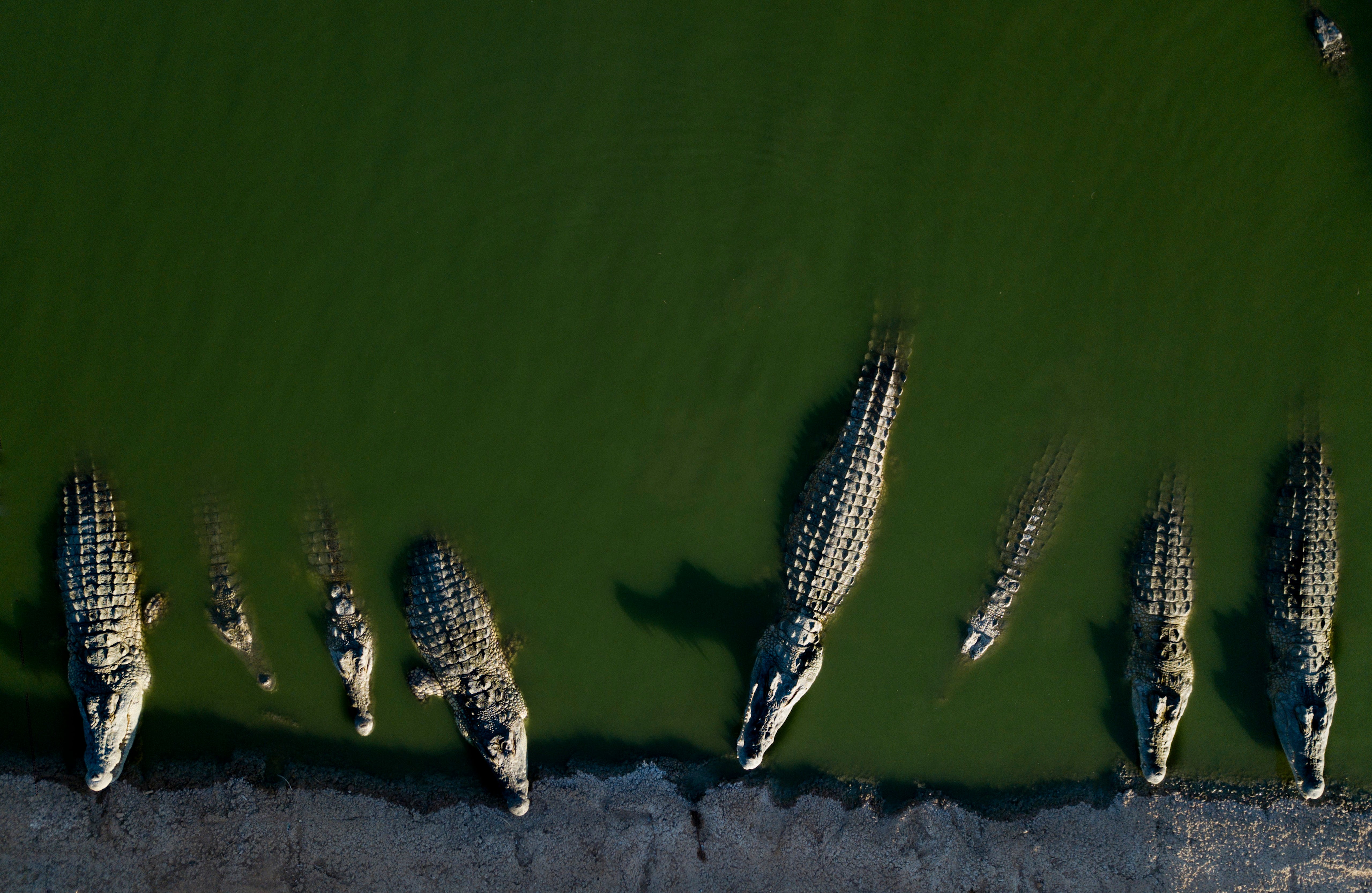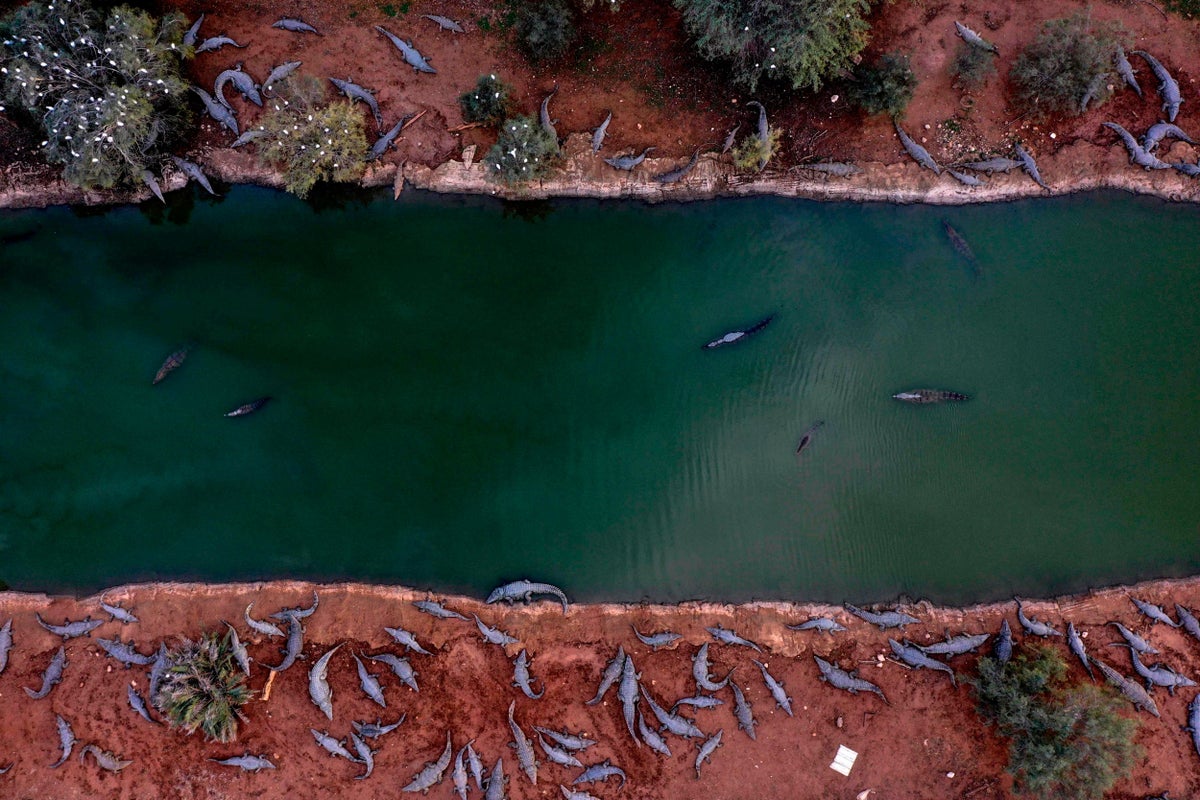Your support helps us to tell the story
From reproductive rights to climate change to Big Tech, The Independent is on the ground when the story is developing. Whether it’s investigating the financials of Elon Musk’s pro-Trump PAC or producing our latest documentary, ‘The A Word’, which shines a light on the American women fighting for reproductive rights, we know how important it is to parse out the facts from the messaging.
At such a critical moment in US history, we need reporters on the ground. Your donation allows us to keep sending journalists to speak to both sides of the story.
The Independent is trusted by Americans across the entire political spectrum. And unlike many other quality news outlets, we choose not to lock Americans out of our reporting and analysis with paywalls. We believe quality journalism should be available to everyone, paid for by those who can afford it.
Your support makes all the difference.Read more
A bask of crocodiles, kept for decades inside an Israeli settlement in the West Bank, have been euthanised after years of repeated escapes from a neglected farm.
Israeli authorities confirmed on Monday that government veterinarians had culled the crocodiles, citing threats to local residents and the animals’ inhumane treatment.
The exact number of crocodiles euthanised and the method of culling were not immediately clear.
“The Nile crocodiles at the farm were being kept in an abandoned compound under poor conditions that constitute animal abuse, with insufficient access to food, which had driven them to cannibalistic behaviour,” COGAT, the Israeli defence body that administers civilian affairs in the West Bank, said.

open image in gallery
Crocodiles rest in water at a farm in the West Bank (AP)
The crocodiles were initially brought to the town of Petzael as a tourist attraction before the business venture was derailed by violence between Israel and Palestinians in the occupied West Bank.
They were later purchased by an entrepreneur who hoped to sell their skin. Their fate has been an open question since Israel in 2012 passed a law classifying the reptiles as protected animals and banned raising them for sale as meat or merchandise.
“I don’t want to think of what will happen if a crocodile manages to escape and reaches the Jordan River, and then we’ll have an international incident,” the head of the local community said in 2018, referencing the border with Jordan 4.2 miles (6.8 kilometres) away.
COGAT said that authorities had spent hundreds of thousands of Israeli shekels (more than $29,000) to re-fence the dilapidated farm, which has been in a state of disrepair since it was shut down in 2013.
It said that veterinarians were consulted on how to humanely exterminate the animals.
